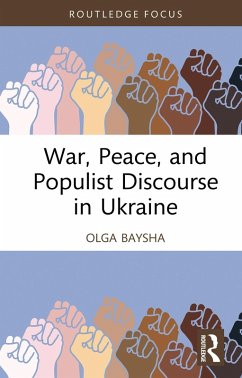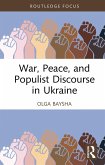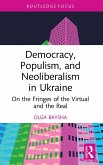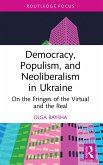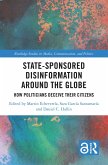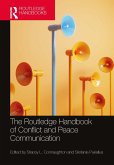To deconstruct the "civilization versus barbarism" discourse propagated by Zelensky, the book incorporates into its analysis alternative articulations of the crisis by oppositional voices. The author looks at the writing of several popular Ukrainian journalists and bloggers who have been excluded from the field of political representation within Ukraine, where all oppositional media are currently banned. Drawing on the discourse theory of Ernesto Laclau and Chantal Mouffe, the author argues that the incorporation of alternative perspectives, and silenced voices, is vitally important for understanding the complexity of all international conflicts, including the current one between Russia and Ukraine.
This timely and important study will be relevant for all students and scholars of media and communication studies, populist rhetoric, political communication, journalism, area studies, international relations, linguistics, discourse analysis, propaganda, and peace studies.
Dieser Download kann aus rechtlichen Gründen nur mit Rechnungsadresse in A, B, BG, CY, CZ, D, DK, EW, E, FIN, F, GR, HR, H, IRL, I, LT, L, LR, M, NL, PL, P, R, S, SLO, SK ausgeliefert werden.
Joseph Oliver Boyd-Barrett, Professor Emeritus, Bowling Green State University
"Olga Baysha's War, Peace, and Populist Discourse challenges the good-versus-evil oversimplification of the Russia-Ukraine conflict and argues that the road to peace must include a shift from antagonism to agonism. This is a valuable addition to the analyses of the ongoing crisis."
Natalia Knoblock, Associate Professor, Saginaw Valley State University

